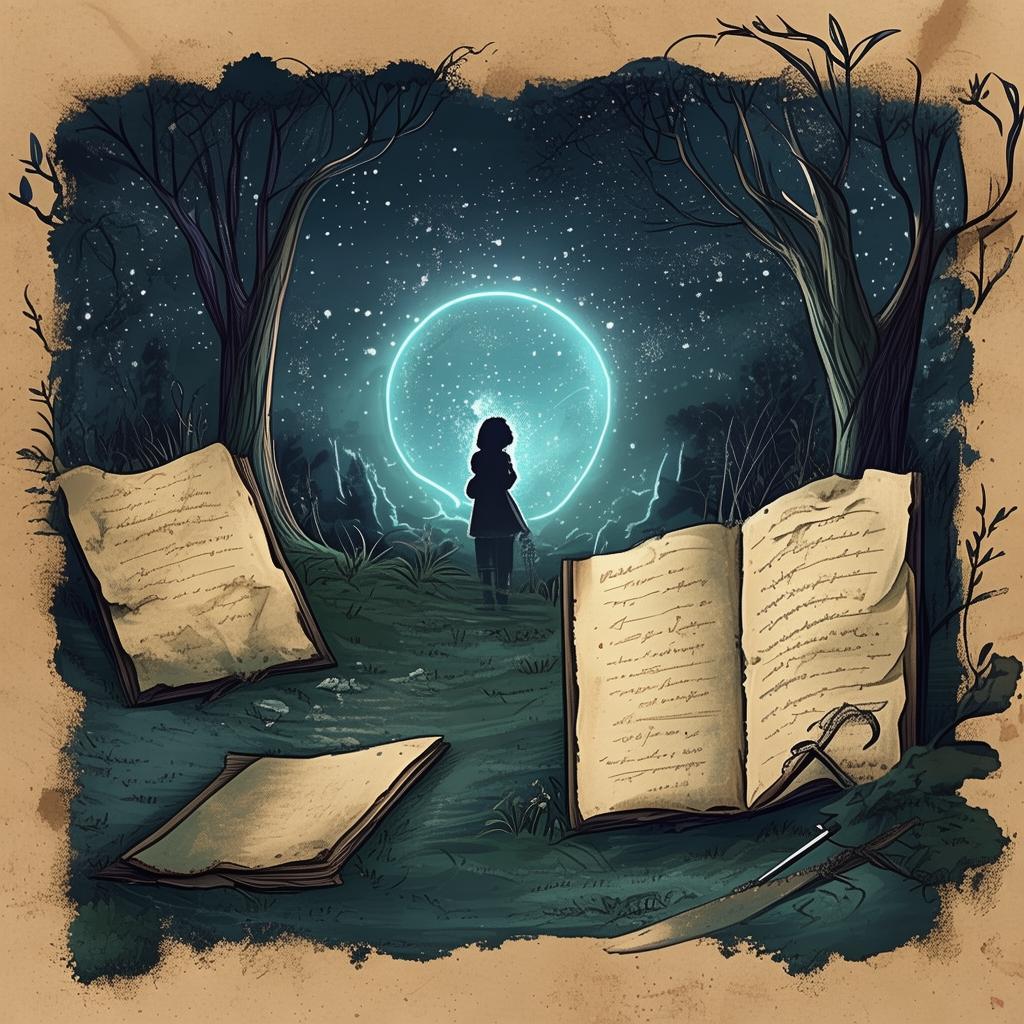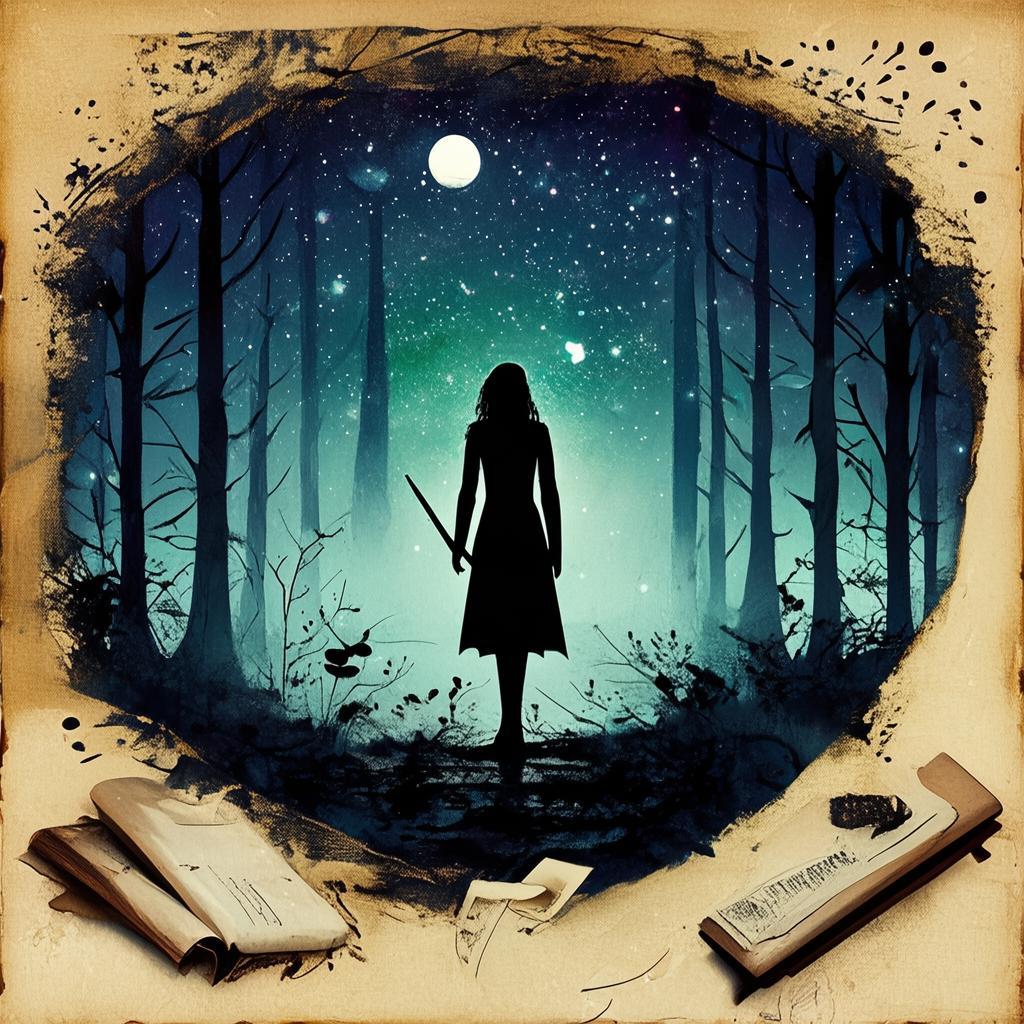Whispers in the Withering Garden
In the heart of the sun-drenched countryside, the Withering Garden stood as a testament to the forgotten tales of the Van der Laken family. Its lush greenery and ancient stone walls concealed a history steeped in silence and secrets. The garden had seen its fair share of visitors, yet none had ever lingered long enough to truly understand its secrets. Until now.
Eliza, a young woman with a troubled past, had recently been left the sprawling estate by her distant great-aunt. The letter was concise, almost haughty, but the promise of inheritance was one she couldn't refuse. She packed her bags, a suitcase heavy with the weight of her recent divorce and the specter of her ex-husband's lies, and made her way to the Withering Garden.
The drive had been serene, the sun casting long shadows through the leaves, as if warning Eliza of the shadows that lay within the estate itself. Upon arrival, she found the grand house to be imposing, with a front door that seemed to invite her in, but also to demand answers.
Inside, the air was thick with dust and the scent of aged wood. The grand hall was a cavernous space, its high ceiling lost in the labyrinth of beams and decorations. Eliza wandered the corridors, her footsteps echoing through the empty rooms. She felt the weight of the house's history, the whispers of the past that seemed to call her name.
Her curiosity led her to the library, where dusty books lined the shelves and a grand, leather-bound tome lay open on the desk. It was a family chronicle, filled with names and dates, but it was the marginalia that caught her eye. Pages upon pages were filled with cryptic messages, the handwriting almost childlike in its urgency.
The chronicle spoke of a branch of the Van der Laken family known for their peculiar genius and their tragic decline into madness. Eliza's great-aunt had been part of this lineage, and as she read further, she realized the house was more than just a physical structure; it was a time capsule, preserving the secrets of the family's mental unraveling.
Eliza's investigation into her family's history led her to the study, where the most recent entries of the chronicle were stored. There, she found a journal belonging to her great-aunt, filled with diary entries that seemed to be a blend of fact and fiction. The entries spoke of a love that was both consuming and destructive, a love that had driven generations of the family to the brink of madness.
It was in this study that Eliza met her first real clue. A portrait of her great-aunt, young and beautiful, smiled down at her. The frame was adorned with an intricate lock, and beside it was a key. The journal mentioned a lock, a key, and a letter. Eliza tried the key in the lock and, to her surprise, it turned. Inside was a sealed envelope, its seal unbroken, as if it had been waiting for someone to open it.
Eliza broke the seal and removed a single sheet of parchment. The letter was written by her great-aunt, who confessed her love for a man who was not of her blood. The letter spoke of a love that was forbidden and unrequited, a love that had driven her to the edge of sanity.

The discovery of the letter sent Eliza into a spiral of introspection. She began to question her own love, her own sanity, and whether she was following a path laid down by her ancestors. Her dreams became nightmares, filled with visions of her great-aunt, the garden, and the love that had corrupted the Van der Laken bloodline.
As the days turned into weeks, Eliza's investigation took her deeper into the garden itself. She discovered old stone tablets hidden beneath the ivy, each with a message about the cost of love and the madness that could ensue. The garden, once a sanctuary, now felt like a trap, its beauty a façade for the darkness that lay within.
It was during one of her late-night wanderings that Eliza found herself standing before an old oak tree, its branches heavy with ivy. At its base was a small, unmarked grave, the only sign of a burial in the otherwise abandoned garden. The gravestone had been stolen, leaving only a shallow indentation in the earth.
Eliza knelt to examine the indentation, and as she did, she felt a presence. She turned to see a young woman, her hair a mass of wild red curls, staring back at her. The woman's eyes were wide with fear and sorrow, and Eliza felt a chill run down her spine.
"Eliza," the woman whispered, her voice trembling. "You must leave this place. The garden is not what it seems."
Before Eliza could respond, the figure vanished, leaving only the scent of roses in her wake. She was shaken, but determined to uncover the truth. She returned to the library, searching for any mention of the young woman in the chronicle. It was there, among the pages of marginalia, that she found the name: Isolde, daughter of the family's most notorious member, a woman driven mad by love.
Eliza's research led her to the conclusion that Isolde had been the great-aunt's namesake, and that her tragic love story was the reason behind the madness that had befallen the Van der Laken family. The garden was a monument to Isolde's sorrow, a place where the whispers of love and madness intertwined.
One evening, as the sun began to set, Eliza returned to the old oak tree. She found the gravestone there, now inscribed with Isolde's name and the date of her death. She placed the key in the lock, and the stone door swung open, revealing a hidden compartment within the tree.
Inside was a locket, and as Eliza opened it, she saw a portrait of a woman who looked strikingly like her. It was her great-aunt, Isolde, but the woman's eyes held a timeless wisdom. Eliza understood that she had inherited more than just the estate; she had inherited the legacy of love that had driven her family to the brink of madness.
She returned to the house, her mind filled with the weight of her discovery. She realized that the garden was not just a place of sorrow, but also a place of healing. She decided to keep the estate, to open the doors to the world and let the garden thrive once more, a testament to the power of love, both beautiful and destructive.
Eliza sat in the library, the sun casting a warm glow through the window, and she felt a sense of peace. She understood that the whispers in the Withering Garden were not just echoes of the past, but also a warning for the future. She had been warned, and now she knew that the road ahead would be filled with challenges, but also with the potential for love, in all its forms.
And so, the Withering Garden became Eliza's home, a place where the whispers of the past and the promises of the future danced in harmony.
✨ Original Statement ✨
All articles published on this website (including but not limited to text, images, videos, and other content) are original or authorized for reposting and are protected by relevant laws. Without the explicit written permission of this website, no individual or organization may copy, modify, repost, or use the content for commercial purposes.
If you need to quote or cooperate, please contact this site for authorization. We reserve the right to pursue legal responsibility for any unauthorized use.
Hereby declared.









